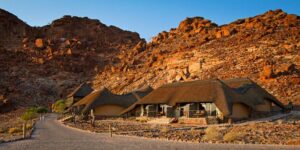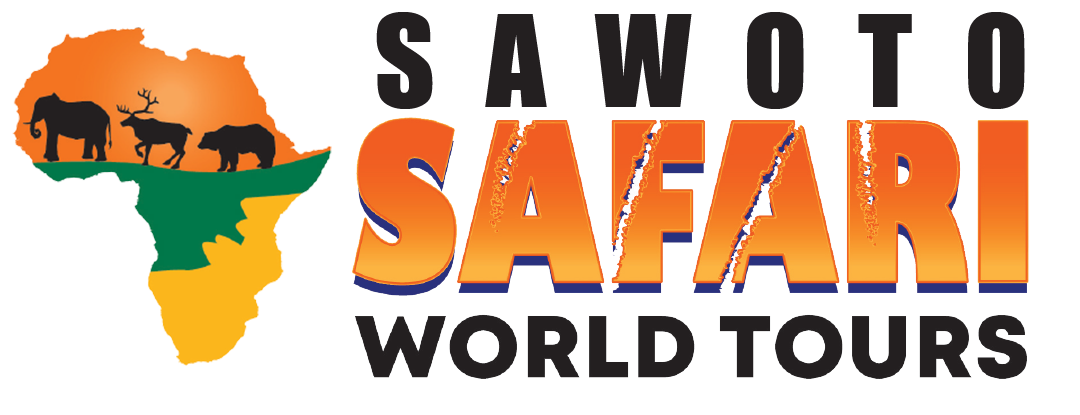Do not hesitate to give us a call. We team is here to talk to you.
+264 81 8211 521
info@safariworldtours.com
This 7-day lodging tour is the best of Cape Cross, part of the Coastal City, and unique paintings in Damaraland. This safari combines the Cape Cross Seals colony, it’s a reserved sanctuary for the world’s largest breeding colony of Cape fur seals, and Swakopmund which is the coastal city in Namibia, west of the capital, Windhoek whose sandy beaches face the Atlantic Ocean with its breathtaking sandy dunes.
Lastly in Damaraland, you will do elephant trekking, visit the living museum of the Damara tribe, and unique rock paintings (white lady painting) in Twyfelfontein.
The tour will start in Windhoek you will be picked up at your hotel or guesthouse so you should be ready early in the morning. Guest will depart to Swakopmund early morning at around 08:00. It’s about 3 hour drive to Swakopmund where you will be sleeping for 2 night once you have arrived, you will have lunch and afterward go visit the Museum and Aquarium.
Overnight & Hotel Pension A La Mer or similar


After breakfast you will go to the dunes for a sand boarding and quad biking activity dinner at one of the local restaurants in Swakopmund.
Overnight & Hotel Pension A La Mer or similar
Bed, Breakfast and Dinner
In the morning you depart to Cape Cross where you will be spending for two night which is best known for its extraordinary breeding colony of Cape fur seals and has been made a reserve. With the abundance of fish swimming in the cold Benguela current, the seals have plenty to snack on, and they also enjoy lying and playing out in the sun.
Overnight & Cape Cross Lodge or similar
Bed and Breakfast


After breakfast you can further go hang out with the seals or you can visit Excursions to Shipwrecks, Excursions to Messum Volcanic Crater, and excursions to Valley of the Welwitschia and Eco-friendly tours into the Namib Desert if you have not gotten time to see it when you arrived
Excluded Optional Activities: Excursions to Shipwrecks, Messum Crater, seal and salt crystals tours, coastal angling, and boat cruises
Overnight & Cape Cross Lodge or similar
Basis
Bed and Breakfast
You depart to Twyfelfontein the World Heritage Site with famous rock engravings on the search of the elusive desert-adapted elephants. As you continue deeper into Damaraland, the landscape becomes increasingly dramatic. You should reach your accommodation. Enjoy another breathtaking sunset with a refreshing drink.
Included activities
See the Petrified Forest or marvel at the Organ Pipes and Vingerklip
Guided Hiking Trails.
Twyfelfontein rock engravings
Geological rock formations bearing witness of a time long gone
Overnight & Twyfelfontein Country Lodge or similar


You depart to Damaraland in the early morning because of the activities in search of the illusive desert-adapted elephants. The hot part of the day is spent at the lodge or campsite. We recommend a visit to the Damara Living Museum in the afternoon where you will have a unique experience of historic Damara culture.
Overnight & Damara Mopane Lodge
Bed and Breakfast

Clients have breakfast, pack up and drive back to Windhoek on this last day of the tour.

Swakopmund is a beach resort and characterized by German colonial architecture. The city was founded in 1892 as the main harbour for German South West Africa. Buildings in the city include the Altes Gefängnis, a prison designed by Heinrich Bause in 1909.
Walvis Bay is the second-most populous city and the largest coastal city in Namibia. Walvis Bay’s population is about 63,000 people. Swakopmund is the third-most populous city in Namibia and the capital of the Erongo administrative district, home to about 45,000 people.
Swakopmund is roughly a four-hour drive from Windhoek. The city is serviced by an airport which can accommodate small aircraft. German, Afrikaans and English are the predominant languages spoken. Swakopmund is considered more expensive than other Namibian cities.
Tap water is generally very safe in Namibia, even though the taste varies. It is especially pure when it comes from lodge or farm boreholes.
Cape Cross offers two highlights: Firstly a historical landmark where Diego Cão set foot on land in 1485 as the first european. Secondly a very large cape fur colony including deafening shouts und heavy smells.
Cape Cross Nature Reserve is the largest Cape fur seal colony in the world. During the breeding season in November and December, there may be up to 210 000 seals at Cape Cross.
It is home to one of the largest Cape Fur Seal colonies in the world. It derives its name from the padrão (stone cross) that was initially erected by Diogo Cão in 1486.
Cape fur seals can live up to 21 years. Males reached sexual maturity at 4-5 years of age but normally don’t start breeding until 8-13 years of age and the females reached sexual maturity at 3-4 years of age.
The site forms a coherent, extensive and high-quality record of ritual practices relating to hunter-gatherer communities in this part of southern Africa over at least 2,000 years, and eloquently illustrates the links between the ritual and economic practices of hunter-gatherers.
Twyfelfontein is situated in the southern Kunene Region of Namibia, an area formerly known as Damaraland. The site lies on the banks of the Aba Huab River in the Huab valley of the Mount Etjo formation.
The Damaraland is an area of geological wonder, ancient rock art and beautiful, wild landscapes. It’s also home to one of Africa’s largest populations of free-roaming black rhinos and Namibia’s famous desert elephants.
Prior to 1870 the hunter-gatherer Damara occupied most of central Namibia they used to practice pastoralism with sheep and cattle, but were also agriculturalist planting pumpkins, corn, tobacco.
The Damaran just like the Sān believed in communal ownership of land meaning that no individual owned land as God had given land to everyone. Thus, rather than one person owning good grazing land and another seeking out an existence, all would live in harmony.
The Damara have traditionally built mud houses as a source of shelter and these houses are built with sticks that are then plastered with cattle dung and sand mixture.
Their original culture was a mixture of an archaic hunter-gatherer culture and herders of cattle, goats and sheep. Due to their loose social structures the Damara were not able to defend themselves against aggressors during the colonization of Namibia.
